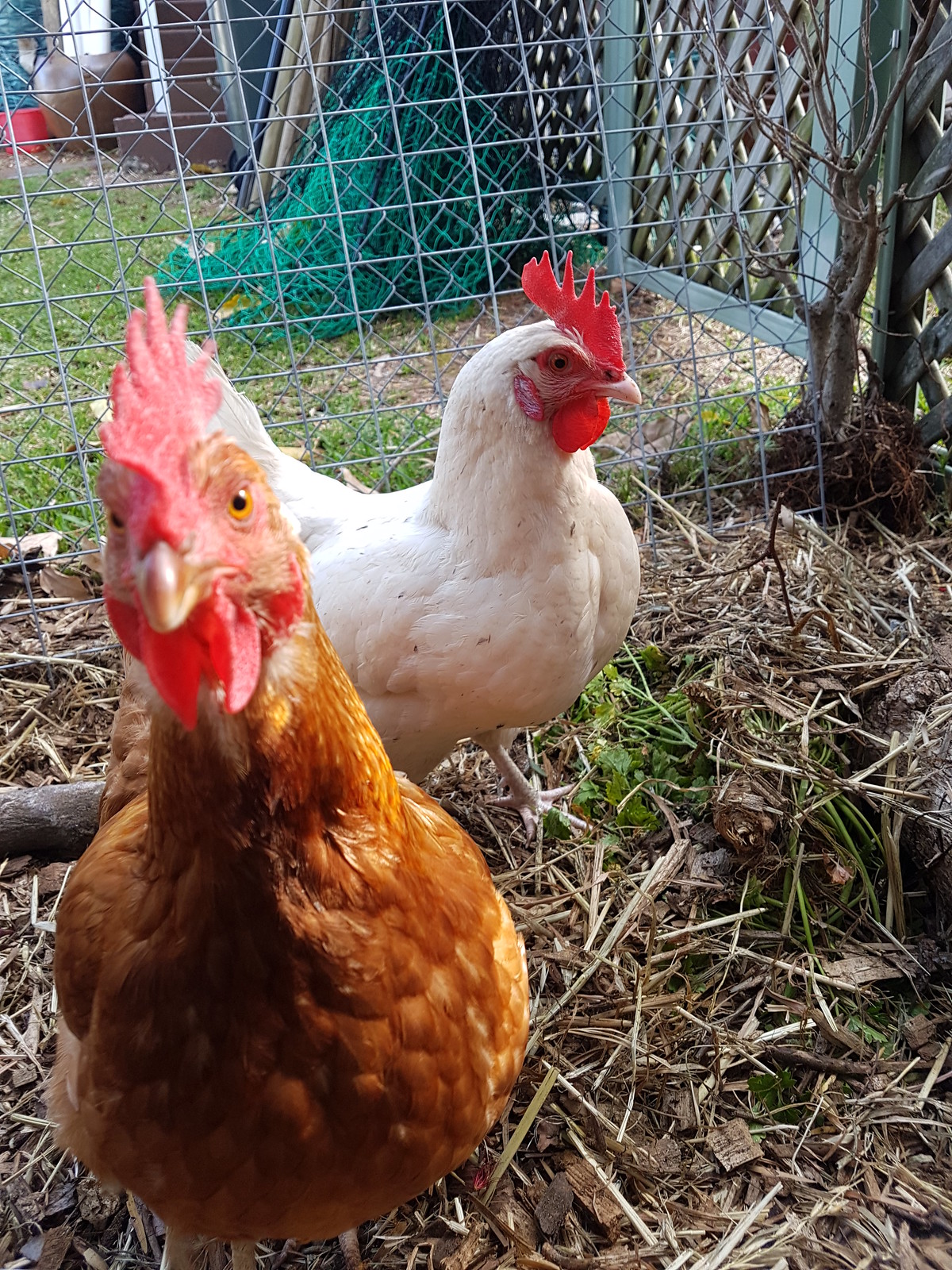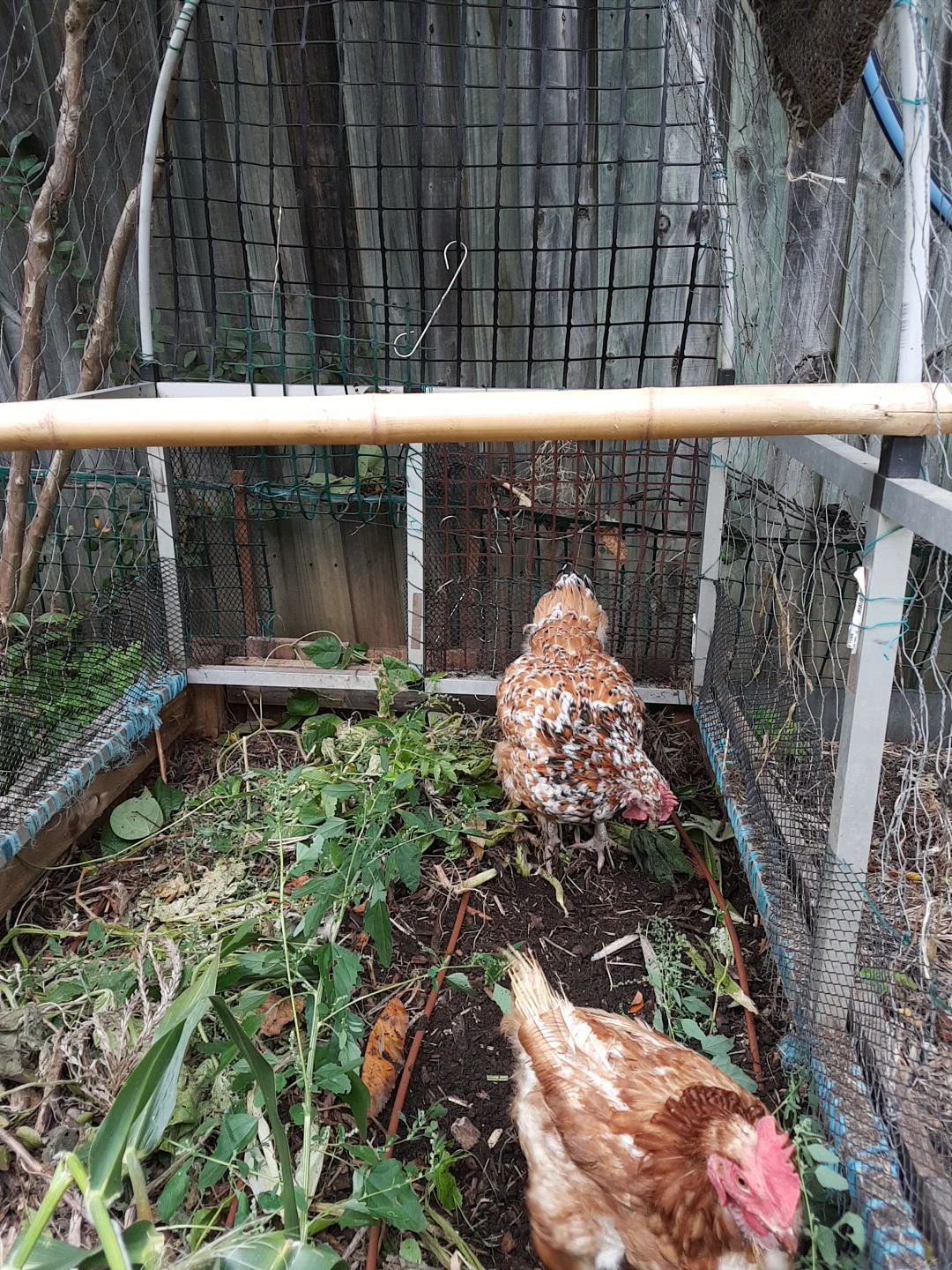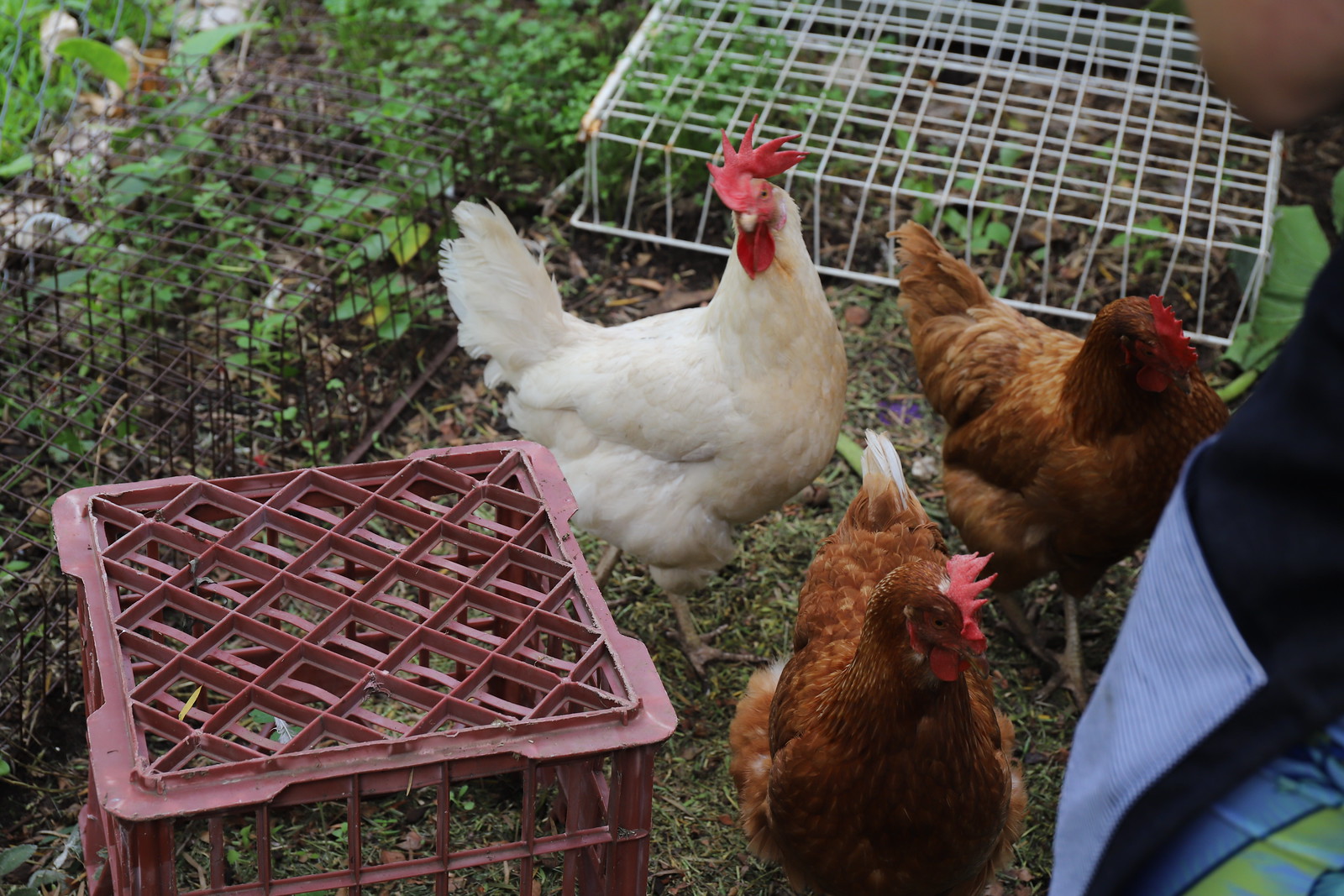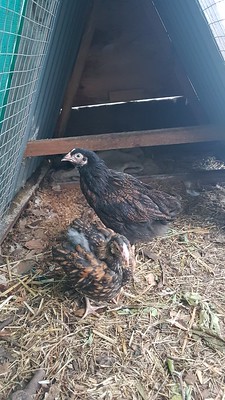
Then we got Sussy and Tjatse - the New Shanghai.

After they died, we (more or less accidentally) acquired Shantung and Coldie - the Banquet.

Now we have two new girls - a Barnevelder and a Wyandotte, both gold-laced. Heirloom breeds that will hopefully live long and prosper!
They're in between names right now - my sister wants to call them Si-Yow and Goong-Bao, but I personally prefer the names Coco and Chilli. So it's all a little confused right now.

Having this many chickens at once has presented an interesting question of life and death.
To some degree or another, I've had 'succession planning' in mind ever since we got the Original Recipe: they were layers whose breeding is basically to lay as many eggs as possible until they collapse from the laying and pretty much die. In industrial farming, Hainan and Honey's breeds - a Leghorn and an ISA Brown - would lay heavily for 18 months and then they'd be either killed off or farmed out, to be replaced by younger models. I knew this fairly early on, and always planned to slowly increase the brood.
What with one thing and another, we only started adding to our flock last year, and then all of a sudden we had chickens right left and centre! It's been pretty busy around here, bringing in the new chickens and acclimatising them not only to each other but to the setup of the garden.
However, both Hainan and Honey have had issues with their reproductive tract in the last six months, requiring a visit to the vet and medical decisions regarding their care. Now both of them have a hormone implant that keeps them from laying, and Honey may very well need surgical intervention.
Which brings us to a question that most urbanites don't actually ask themselves: Are these backyard chickens pets or are they productive farm animals?
How much are we willing to pay to keep them alive, even after their egg-laying days are done? Are we willing to put them down when their time is over, and if so, when is their time over?
And that leads into a question that is even more fraught: What are the end-of-life options for your backyard chickens?
I'm fairly sure I could kill a chicken if I had to. It's not the death that bothers me, or even the taking of it. An animal deserves a swift and as-painless-as-possible death, whatever the purpose of that death - whether simply to put them out of pain or to put them in the pot. The part that worries me a little is possible emotional connection with chickens that I've grown attached to, and the prospect of screwing it up, or of making a mess.
I don't expect everyone to think the same way, either. My own attitude is that they're partly pets and partly farm animals. I'd like to keep them alive with a good quality of life as long as possible, but I'm not entirely comfortable with - say, medical intervention to the degree of surgery. And, to be honest, there's a personal component to it. Both Hainan and Honey are our first birds, we've spent time with them, cuddled them, they have wonderful personalities that I've gotten to know in the last three and a half years that we've had them. The next couple - Coldie and Shantung - I am less personally invested in. Chances are, once they reach failing age - that is, once they start getting sick beyond basic care, we may simply say "such is life" and end their days.
I don't think the killing of animals is morally wrong, by the way. I am an omnivore, and acknowledge that many things die to provide the protein which I am fond of eating. Do I have issues with commercial animal production and slaughter? Yes. But also, humans as a race have been bringing up animals for slaughter and food since Day Dot, and so long as the care of the animals in life is good and their death is swift and not for pleasure or pride (eg. trophy hunting), everything lives and dies. *insert The Circle Of Life song*
But, yes. The questions regarding the responsible way to deal with the end of a productive animal's life rears its head. I have some answers to those questions, and I will live with them, but they're not comfortable - not for an urbanite like me. That doesn't mean I get to ignore them.
No comments:
Post a Comment